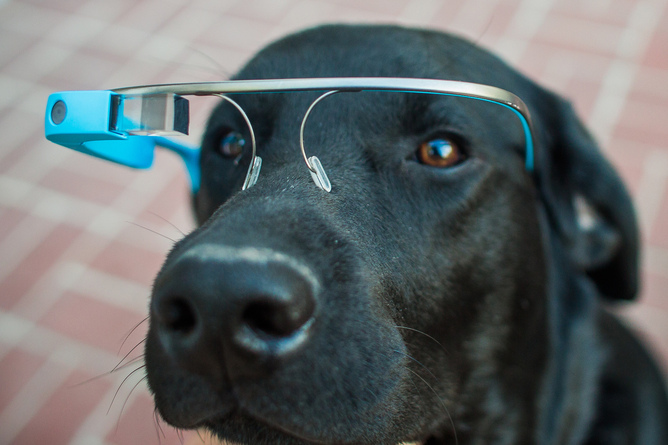
Watches, Glasses and Super-Tablets: Tech Predictions for 2014 (Op-Ed)

This article was originally published at The Conversation. The publication contributed the article to LiveScience's Expert Voices: Op-Ed & Insights.
With Microsoft losing its controversial CEO, Apple launching new iPads and iPhones and the rise of wearable devices all making headlines, it’s been another huge year for technology. That’s before you look at the gobbling up of Nokia, Amazon’s embrace of drones and the ongoing NSA affair.
So what were the hits of 2013, and what will this year hold?
The year of the tablet
It will be no surprise to discover record numbers of tablet sales over the Christmas period as the lowering cost and increasing power of these devices continues to disrupt PC sales. At the low price end (£100-£150) the better devices are either single use, such as the Kindle ebook reader, or are heavily discounted because of the services offered through the device (such as the Tesco Hudl). Unfortunately many of these devices are very poor, with manufacturers cutting costs by using cheap plastic casings, unresponsive touch screens or inefficient batteries.
There are many mid range tablets running Google’s operating system, with the Nexus 10 or Sony Xperia standing out in most comparative reviews. These tend to run well out of the box, but could lack the depth and breadth of polished apps that are available on Apple devices. For those prepared to sacrifice a degree of functionality for cost, these devices are ideal.
The top end is still dominated by the Apple iPad, with its “best in class” iPad air or iPad mini. The combination of form factor, faster processor and retina display pushes the price up but still makes this the market leader.
Microsoft is still promoting an alternative model with their Surface 2 tablets - where the tablet also works as a traditional PC. Ensuring these devices can run PC programs places limits on their design, with USB ports and Intel processors affecting the physical shape and battery life. Microsoft has insisted that running Office is a major selling point of these devices – a strategy that was derailed somewhat when outgoing CEO Steve Ballmer revealed that development of Office for iPad was progressing.
Sign up for the Live Science daily newsletter now
Get the world’s most fascinating discoveries delivered straight to your inbox.
2014 should continue the trend of advanced features and functionality moving from the high end devices down to the mid or low cost end. It may also be the year where the new form factors - glasses or watches – finally start to arrive.
Apple
The recent changes to Apple’s professional level laptops (decreasing weight, adding battery life and reducing cost) have created a degree of overlap with their Macbook Air range. Rumours suggest that Apple may prototype a larger tablet, or a new design of ultra-thin laptops running iOS. This larger form factor with an ARM processor could have 20-30 hours battery life and run iPad/iPhone apps, but not traditional Mac OS X applications, which would be a significant change.
The Apple Watch is still missing, perhaps they’ve realised the number of 20-30 year olds wearing watches has significantly decreased, so the market is not worth pursuing.
Microsoft
The new Microsoft CEO will inherit a restructured company that must succeed in the mobile and home market under significant competitive pressure. Hopefully the issues with the XBOX ONE launch (some hardware problems and a limited number of games) will be quickly overcome.
The Surface tablet is starting to look tired compared to the sleeker, lighter alternatives available, so a redesign towards the end of 2014 looks likely. A reduction in price may also make these more desirable. There is a vast market eager for Office to run on Android and Apple devices. The problem is that this would remove one of the significant reasons for purchasing a Surface.
2014 will either see Google roll out Glass, or abandon it in favour of some lighter less intrusive technology. Some restaurants and public spaces in America are already placing restrictions on Glass use because of its video recording facility, an issue which is only likely to become more prominent with an increasing number of similar style devices.
In the mobile sector Samsung has become the dominant seller of Android phones with 60% of the market. The issue for Google is that such dominance allows Samsung the ability to control which features they allow through to their customers, which could bring conflict between the two.
The recent Jolla phone may demonstrate the ability of alternative app stores to match Google’s offering - what would happen if Samsung decided it was more profitable to switch their customers away from Google?
All in all, 2014 will see many things that were hinted at in 2013 become more mainstream or die off. It’s unlikely we’ll all be looking at our smart watches through our Google Glasses. But who knows, this time next year I could be declaring 2014 the Year of the SmartWig.
Barry Avery does not work for, consult to, own shares in or receive funding from any company or organisation that would benefit from this article, and has no relevant affiliations.
This article was originally published at The Conversation. Read the original article. The views expressed are those of the author and do not necessarily reflect the views of the publisher. This version of the article was originally published on Live Science.









